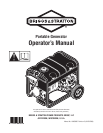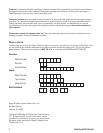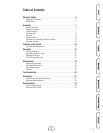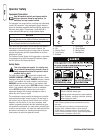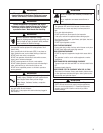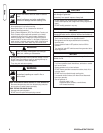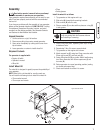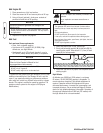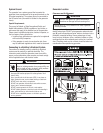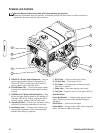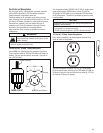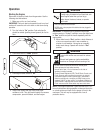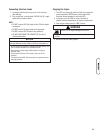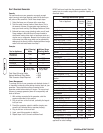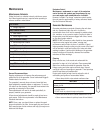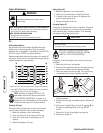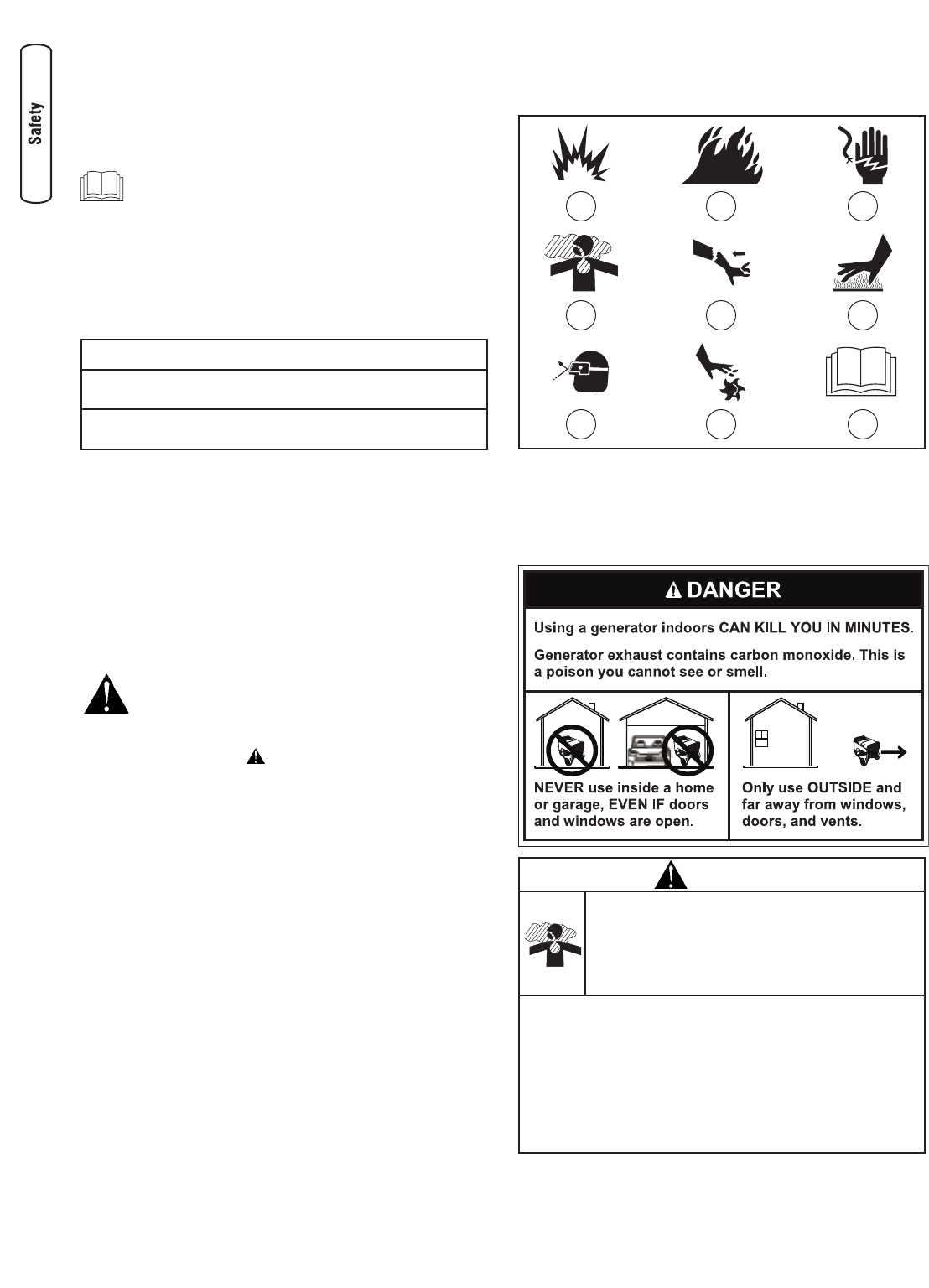
Operator Safety
Equipment Description
Read this manual carefully and become familiar
with your generator. Know its applications, its
limitations and any hazards involved.
The generator is an engine–driven, revolving field, alternating
current (AC) generator. It was designed to supply electrical
power for operating compatible electrical lighting, appliances,
tools and motor loads. The generator’s revolving field is
driven at about 3,600 rpm by a single-cylinder engine.
Every effort has been made to ensure that the information in
this manual is both accurate and current. However, the
manufacturer reserves the right to change, alter or otherwise
improve the generator and this documentation at any time
without prior notice.
The Emission Control System for this generator is warranted
for standards set by the Environmental Protection Agency
and the California Air Resources Board.
Safety Rules
This is the safety alert symbol. It is used to alert
you to potential personal injury hazards. Obey all
safety messages that follow this symbol to avoid
possible injury or death.
The safety alert symbol ( ) is used with a signal word
(DANGER, WARNING, CAUTION), a pictorial and/or a safety
message to alert you to hazards. DANGER indicates a hazard
which, if not avoided, will result in death or serious injury.
WARNING indicates a hazard which, if not avoided, could
result in death or serious injury. CAUTION indicates a hazard
which, if not avoided, might result in minor or moderate
injury. NOTICE indicates a situation that could result in
equipment damage. Follow safety messages to avoid or
reduce the risk of injury or death.
The manufacturer cannot possibly anticipate every possible
circumstance that might involve a hazard. The warnings in
this manual, and the tags and decals affixed to the unit are,
therefore, not all-inclusive. If you use a procedure, work
method or operating technique that the manufacturer does
not specifically recommend, you must satisfy yourself that it
is safe for you and others. You must also make sure that the
procedure, work method or operating technique that you
choose does not render the generator unsafe.
Hazard Symbols and Meanings
A - Explosion F - Hot Surface
B - Fire G - Flying Objects
C - Electric Shock H - Moving Parts
D - Toxic Fumes J - Read Manual
E - Kickback
4 BRIGGSandSTRATTON.COM
NOTICE
Exceeding generators wattage/amperage capacity can
damage generator and/or electrical devices connected to it.
• DO NOT exceed the generator’s wattage/amperage capacity. See
Don’t Overload Generator in the Operation section.
A B C
D E
G H
F
J
WARNING
Running engine gives off carbon monoxide, an
odorless, colorless, poison gas.
Breathing carbon monoxide can cause headache,
fatigue, dizziness, vomiting, confusion, seizures,
nausea, fainting or death.
• Operate generator ONLY outdoors.
• Install a battery operated carbon monoxide alarm near the
bedrooms.
• Keep exhaust gas from entering a confined area through
windows, doors, ventilation intakes, or other openings.
• DO NOT start or run engine indoors or in an enclosed area,
(even if windows and doors are open), including the generator
compartment of a recreational vehicle (RV).



